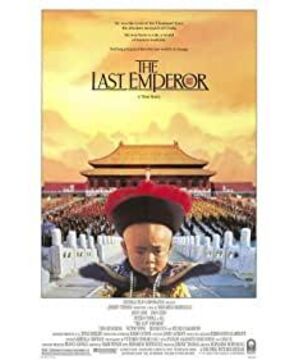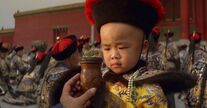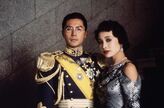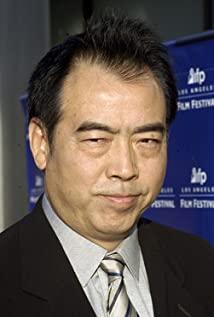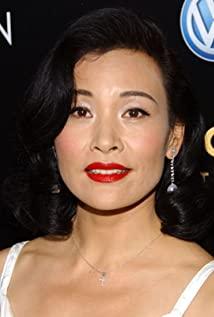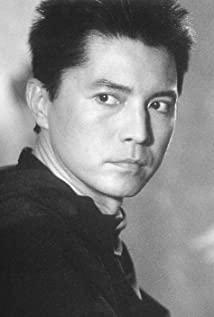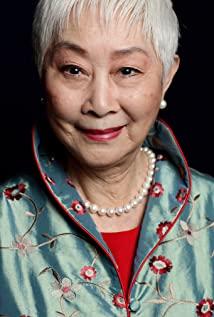Looking at China’s history from the outside and looking at it from a Western perspective will be more transparent, deeper and more real. From this, we can see the ups and downs and sufferings that the Chinese nation has gone through since the end of the Qing Dynasty. This is a nation's transition from a feudal dynasty to a modern society, a huge historical change, and the suffering of the nation before it is ripe; Emperor Fu Yi has been wandering for half his life, and his life is tragic. Fu Yi's life spans several important historical periods in modern Chinese history. While telling about Fu Yi's life, it can also reflect the great changes in history. It is a good historical theme with its own drama. The director of this play made the perfect use of the light of photography to the extreme. A perfect fusion of form and content is achieved. What I admired and liked most was the close-up of Wanrong's half-length body at the banquet after Fu Yi ascended the throne of the Puppet Manchukuo. The light hit Wanrong's half face as soft as the bright moonlight, hazy and mysterious, like a dream. Beauty holds flowers and weeps silently, which is an elegant and sad beauty. Beauty of people, beauty of flowers; beauty of composition, beauty of lighting; beauty of form, beauty of emotion. The director is really a rare genius in the world, and he exerts all the mechanisms that can express beauty in all film arts to the extreme, and constructs a kind of sad beauty that surpasses any primitive human emotion. At the end of the story, the grasshopper at the beginning of the film when Fu Yi ascended the throne was subtly resurrected by the director using "magical realism" film techniques. His life experience adds to the endless sense of tragedy and desolation. It also heralds the reincarnation of history and hope for the future. A perfect ending. This is really a well-deserved film with a sense of national heaviness! Rare in the world!
View more about The Last Emperor reviews


